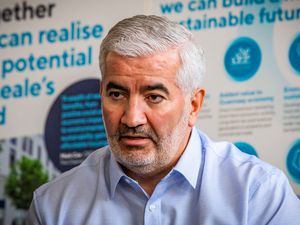Local funds say economy is stifling adoption of science-based targets
THE pace of adoption of science-based targets in the alternative investment fund sector has slowed, a new report, which included Guernsey research, has revealed.

RBS International sought to better understand how alternative funds were faring in the adoption of science-based targets in challenging economic conditions. It surveyed funds domiciled across five jurisdictions, including Guernsey and Jersey, at the beginning of the year, covering sectors including the Guernsey specialisms of private equity and infrastructure funds.
The mounting risks associated with climate change are increasingly shaping the way institutions invest and greater attention is being given to the role of AIFs in decarbonising the economy.
The Science Based Targets initiative’s framework allows financial institutions – including banks, investors, insurance companies, pension funds and others – to set science-based targets to align their lending and investment activities with the Paris Climate Agreement.
The research showed that investment funds had concerns about the time it takes to implement SBTs, and uncertain economic conditions were also playing a part in this, as managers focused on day-to-day challenges.
Just four in 10 respondents have set and verified SBTs. The remainder are planning to set targets, but timeframes appear to be slipping.
Pressure from regulators, investors, and net zero initiatives, are strong drivers of SBT adoption, but this is not helped by a lack of clarity around the legal and regulatory implications of setting SBTs.
The long-term value of SBTs is not doubted. 90% of managers say that SBTs will be increasingly important to their funds in years to come.
‘Financial institutions play a significant role in aligning private capital with global climate commitments, and regulators, investors and capital providers have continued to increase pressure to embed and evidence robust climate strategies,’ said Bradley Davidson, ESG lead at RBS International.
‘The various pressures that drive the adoption of SBTs will change over time, but the pressure remains even if the causes shift. The message is clear – funds must focus on future performance and the competitive advantage that solid climate change strategies aim to bring.’





